
To celebrate the release of the much-anticipated THE WITCH in UK cinemas on 11th March 2016, we had the great fortune to interview the film’s writer and director, Robert Eggers.
In this exquisitely made and terrifying new horror film, the age-old concepts of witchcraft, black magic and possession are innovatively brought together to tell the intimate and riveting story of one family’s frightful unraveling in the New England wilderness circa 1630.
Hi Robert. What inspired you to get into filmmaking?
I’ve always wanted to do it. When I’ve been asked this question in the past, I think there is a making of Return of the Jedi called From Star Wars to Jedi: Making of the Saga that was like a VHS I had when I was a kid and it was a behind the scenes thing. That was very influential and exciting.
Your previous work includes Hansel and Gretel, a tale which also features a witch. Are witches and witchcraft something that has always interested you?
Yes, very much so. My earliest dreams that I can remember are nightmares about witches.

Is there a particular element about witches which freaks you out the most?
Yeah, I’m from New England and New England’s past is always very much part of my consciousness. It’s witch country over here in the States and it’s really cool. We screened in Boston and then we screened in Salem right before the premiere and it was really fun to talk to people who had similar childhood experiences, similar ideas of New England’s mystic past, and felt that the woods behind their house were haunted by witches and puritans in the same way that I felt.
Was The Witch shot in New Hampshire?
I wanted to shoot in New Hampshire, at least Massachusetts, but we couldn’t do it. We couldn’t afford to do it. The only way we could afford to make this film was to shoot it in Canada. Well I thought that with the Canada wilderness, this is going to be easy to find a great location, but where we had our tax credit in Northern Ontario there’s tons of logging so there’s all these tiny, little planted red pine forests. I had to go way, way, way off the map to find something that had a forest system that looked like Southern New Hampshire, where I’m from, with the right white pines and hemlocks and we had no cell service and no wi-fi, which, you know, cry me a river but when you’re trying to make a film in the 21st century it becomes very complicated. It was a very, very remote location but it helped the cast bond and create a good atmosphere for the film.
Was there anything on location that you could use or did you have to create the entire set?
Those kind of structures don’t exist anymore. They’re so primitive, they were turned into outbuildings or destroyed or larger houses were built around them so we had to build the family’s farm. Everything that is on camera is the correct materials that would have been used in the period and very often we had to use the tools and the techniques of the period to create the stuff to make it look right. I mean, don’t get me wrong, if we could use a chainsaw, we would, but if we couldn’t, we wouldn’t.
You’ve done a lot of work in the prop department on previous projects. How has this informed your eye for authenticity?
It informs my ability to do it well. Like, I think if I had made my first film when I was seven I would’ve done a period movie and tried to make it authentic. I’ve always been in love with the past but having professional experience working in the art department enabled me to find a way to articulate the details with a small budget. Hiring Craig Lathrop and Linda Muir, the designers, I knew that they were the right people for the job and in a way that I wouldn’t have if I didn’t have first hand experience.
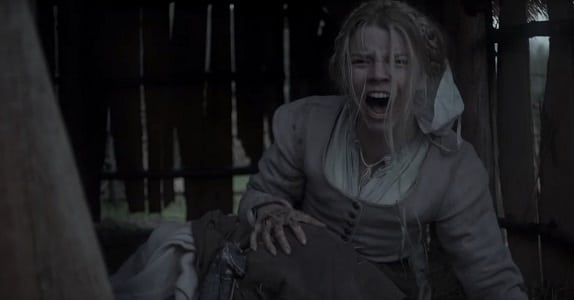
Do you think your background in production design helped you to write and visualise the best way to portray your story on-screen?
It’s how I work so it’s helpful for me. I started out directing theatre and I designed the theatres that I directed just because I was around and I knew what I wanted and then eventually I realised that I could make a living doing that. So that’s how I was making a living trying to get my career off the ground. Even as I was writing I was trying to keep all this stuff… like I had a dollhouse in my imagination that had the farm with all the tools so I had my dolls in my dollhouse that I could play with as I was writing in my head. But also there’s certain things like, I knew that in the meeting house scene in the beginning of the film we were never going to be able to afford shoes for all those people because period shoes, especially from the 17th century, are hard to come by and it’s complicated. It’s not a question of just knowing I’m going to have to frame the feet out because that’s not good filmmaking, I had to say to myself “there can never be a moment in that scene that earns a wide-shot that shows everyone’s feet.” [laughs] So yeah…
Was there any pressure to modernise the dialogue and what sort of sources were used as the basis for it?
There wasn’t pressure to modernise it just because my producers really understood what I was doing but it took a really long time to find financiers who wanted to work with me and my producers and actually make this so I kept holding out to try and find the people who got why it was important.
[on the source material for the dialogue] Tons of stuff, anything from the period. Diaries, journals, court records but also just books from the period and the Geneva bible. I consumed everything I could.
What made you opt for the Northern English accent for your characters?
Originally the family was going to be from Essex because most of the puritans that came over during the great migration were from Essex but Ralph Ineson was the first person cast and I loved his Yorkshire accent and I did a little bit of research and I discovered the oldest timber-frame house that still exists in the U.S. was made by a guy who came over here from Yorkshire. He didn’t get along with all these Essex bastards and so he moved the family out, away from the settlement, to build his own farmstead. So I thought “Perfect. Our family is from Yorkshire”. So then we set about orienting ourselves around a Leeds accent, because the youngest six year old actor was from Leeds, and trying to strip out any modern urbanisms from the Leeds accent.

Did the cast need to learn any particular skills for the movie to convince in their roles?
We had a week of rehearsals which started out with people learning how to use the tools and how to make corn shocks and milk goats and things like that.
Are animals as hard to work with as we’re led to believe?
You know, you can train a dog and a horse, and chickens are pretty easy to wrangle if you have a net, and, believe it or not, that hare was incredibly well trained. The raven was insanely well trained. It did it in one take and hopped back into its cage and smoked a cigarette but this goat was a complete nightmare. The goat never did anything that we needed the goat to do. People are really into the goat over here in the States but I want to say it’s all Louise Ford, the editor, that made that goat work. When we left Canada, I was worried that we wouldn’t have a film. With that said, I’m glad we used a real goat instead of a CG goat. It’s worth it in the end.
Have you used CGI at all in the film or have you used purely practical FX?
There’s CG to fix things and to tie everything together but all of the elements you see were shot practically. I think that as a tool to enhance and polish and to tie it all together, I love CG, I bow down to it but I like having the real thing to work with. For example the goat is almost always on a leash, sometimes two leashes. Certainly whenever it’s chasing children around it’s on a leash. So we’re erasing the leash and sometimes the trainer, the animal trainer’s hand or whatever.
What do you think separates your film from other witch films and what do you hope people will take away from it?
I hope people will bring to it whatever they want. There’s so many kinds of different reactions, positive and negative, and different readings of the film and I think that’s fantastic. So whatever rises to the top for you is absolutely fine by me. I’m not saying this film is of this quality but I love pre-Disney fairytales that don’t necessarily have a point. You read them and there’s just something about them that’s effective but they’re serious and enigmatic and you’re just trying to figure it out but somehow it makes sense.

Over the years, has there been any particular witchcraft films that have stood out to you?
Margaret Hamilton (Wicked Witch in The Wizard of Oz) scared me as a kid, I’ll tell you that! Big time! I like Häxan, the silent film is pretty awesome and I think that in some ways this film is the opposite of Day of Wrath, which I like very much. I don’t know which horror movie I really like a whole lot…hmm… I dunno.
Is horror a genre you’re a personal fan of and would you like to continue working in?
I do like horror and have some other horror films on my slate.
Thank you very much for your time, Robert.
You can find out more about Robert’s work at roberteggers.com
New England, 1630. Upon threat of banishment by the church, an English farmer leaves his colonial plantation, relocating his wife and five children to a remote plot of land on the edge of an ominous forest — within which lurks an unknown evil. Strange and unsettling things begin to happen almost immediately — animals turn malevolent, crops fail, and one child disappears as another becomes seemingly possessed by an evil spirit. With suspicion and paranoia mounting, family members accuse teenage daughter Thomasin of witchcraft, charges she adamantly denies. As circumstances grow more treacherous, each family member’s faith, loyalty and love become tested in shocking and unforgettable ways.
THE WITCH in UK cinemas on 11th March 2016
Read David Smith’s review of The Witch.

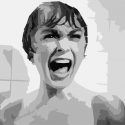
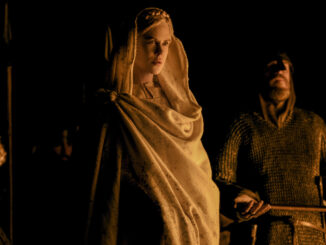
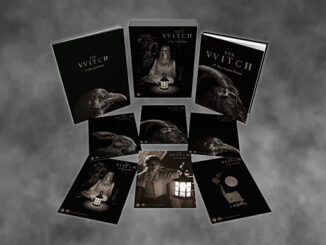
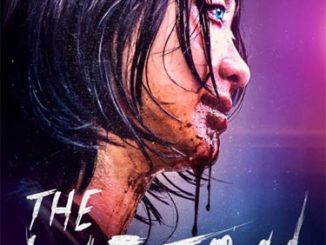
The VVitch opens in UK cinemas on Friday 11th March